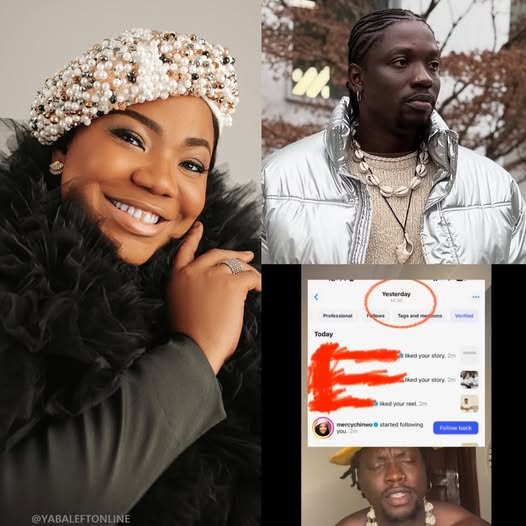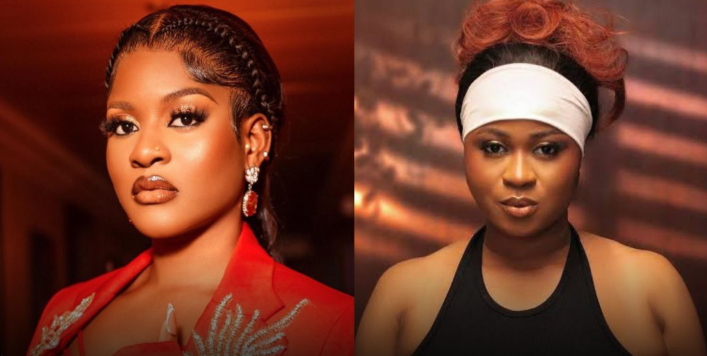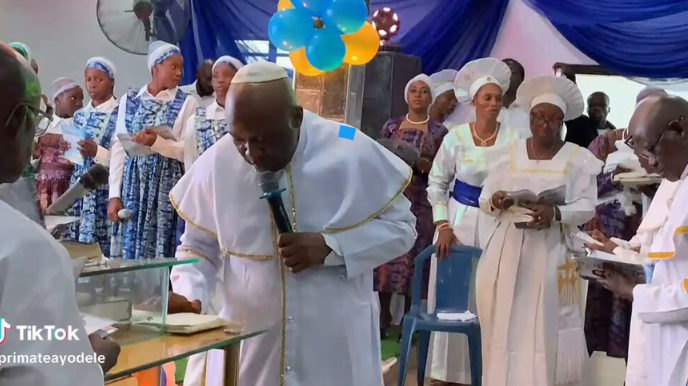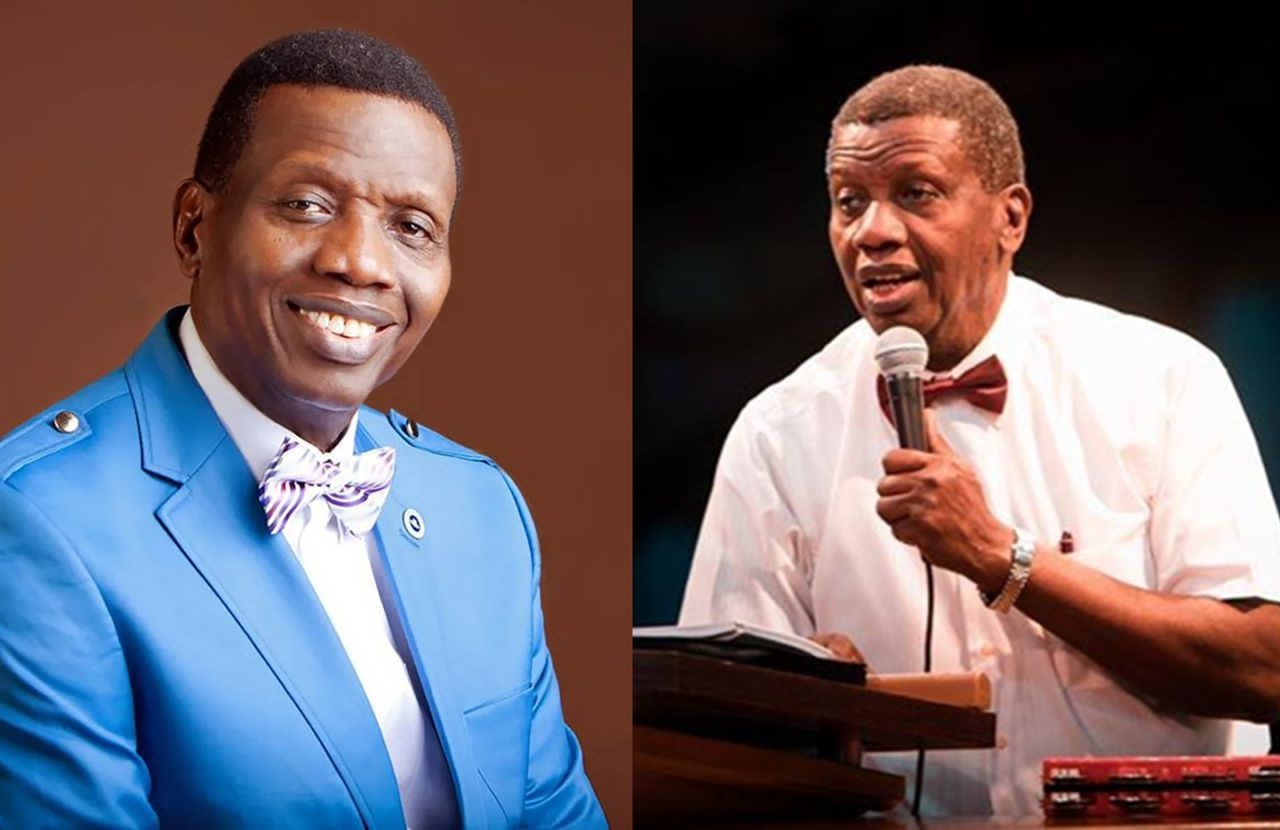
Holy Shade or Publicity Stunt? VDM Blasts Mercy Chinwo After Instagram Follow

In a surprising turn of events that has stirred controversy across Nigerian social media platforms, popular online personality VeryDarkMan, known for his fearless commentaries and unfiltered opinions, has taken aim at celebrated gospel singer Mercy Chinwo. The drama unfolded when Chinwo reportedly followed VDM on Instagram—a seemingly innocent gesture that was met with a scathing public rejection from the internet firebrand.
VDM, whose real name is Martin Otse, wasted no time making his stance known in a direct and explosive message shared on his Instagram stories. "Don't patronize me, I am definitely going to block you. I don't associate with ɘvil, especially one in disguise," he wrote, tagging Mercy Chinwo. The statement, which was as sharp as it was unexpected, left fans reeling and frantically speculating about what could have prompted such a harsh response.
Mercy Chinwo, one of Nigeria’s most loved gospel artistes, known for hit songs like Excess Love and Obinasom, has always projected an image of grace, humility, and an unwavering devotion to her Christian faith. Her online presence has largely been devoid of controversy, making VDM's fierce rejection of her follow request all the more shocking. For many fans, the question is: what exactly does VDM know—or believe—about Chinwo that would compel him to label her "evil in disguise"?
The backlash from VDM’s followers was swift and polarized. While some praised him for staying true to his principles and refusing to “co-mingle” with people he doesn’t align with morally, others slammed him for what they viewed as an unwarranted and disrespectful attack on a woman who has built her career on spreading the gospel and uplifting souls through music.
“Mercy Chinwo? Evil in disguise? Nah VDM missed it this time,” one user posted on X (formerly Twitter). “You can criticize politicians and influencers but dragging someone like Mercy based on a follow? That’s just uncalled for.” Another user countered, “He’s right! Not everyone singing gospel is truly of God. Sometimes discernment sees beyond the public image.”
As speculation continues to mount, several theories have surfaced regarding what might have prompted the outburst. One popular theory making rounds on gossip blogs is that VDM believes Mercy Chinwo is part of a wider pattern of hypocrisy within Nigeria’s gospel music industry—where certain public figures preach holiness but engage in questionable behavior behind closed doors. Though there is no concrete evidence linking Chinwo to any scandal, the cryptic nature of VDM’s accusation has left ample room for interpretation, gossip, and, predictably, backlash.
VDM, whose rise to social media fame has been built on tackling high-profile issues ranging from social justice to influencer accountability, is no stranger to controversy. His approach is unapologetically blunt and has often landed him in hot water with celebrities, politicians, and even fellow activists. However, his credibility among his core fanbase remains intact largely because he is seen as someone who “says it as it is” and doesn’t fear stepping on toes—especially those of the powerful and the revered.
In this case, however, the backlash has exposed a rare vulnerability in his armor. Critics are questioning whether the public rebuke of Chinwo was necessary, or if it was a case of clout-chasing disguised as moral high ground. Some even suggested that the whole episode could have been handled privately, especially considering the sensitive spiritual identity Mercy Chinwo represents.
Meanwhile, Chinwo herself has remained silent on the matter, choosing not to respond publicly to VDM’s statement. The silence, whether strategic or purely graceful, has only deepened public interest. Fans have flooded her recent posts with messages of support, prayers, and encouragement, urging her not to be discouraged or distracted by online hate. “The devil will always try to bring down God's generals. Stay strong, Mercy. Your light will keep shining,” one fan commented.
Others are calling for reconciliation and understanding. “We are all flawed humans,” another follower wrote. “Let love and truth lead. If there’s an issue, let it be addressed in love, not condemnation.”
The drama also raises broader questions about cancel culture within Christian circles, the pressures of public perception, and the blurred lines between spiritual discernment and personal beef. While VDM might feel justified in calling out what he perceives as hypocrisy, the manner in which he chose to do it—publicly, harshly, and without context—has sparked important conversations about grace, judgment, and the ethics of social media accountability.
As both parties move forward, it remains to be seen whether this spat will escalate or simply fade away as the internet finds its next moment of drama. For now, one thing is certain: VDM’s message has struck a chord, ignited debate, and once again put him at the center of Nigeria’s ever-churning online spotlight. Whether that spotlight will shine favorably or expose him to backlash in the long run is anyone’s guess.
In a digital age where a simple Instagram follow can trigger fireworks, this episode serves as a reminder of how fragile public interactions have become—and how even figures of faith aren’t immune to the razor-sharp claws of social media drama. The gospel singer and the internet’s loudest critic may be worlds apart in tone, message, and mission, but for one loud, viral moment, their names were side by side in the headlines—and not for the reasons anyone expected.


